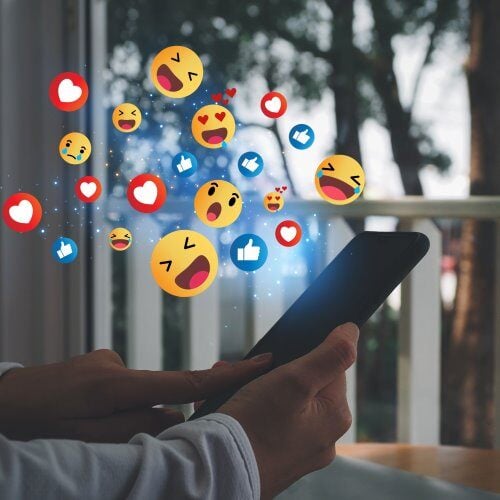Social Media and Mental Well-being
June 6, 2024 - Smart TMS

Social media’s pervasive influence extends far beyond mere communication; it has reshaped the very fabric of social interaction and personal identity. Its impact on mental health is multifaceted, with research indicating both beneficial and detrimental effects. On one hand, social media platforms can serve as a lifeline for individuals seeking connection, especially for those with mobility or accessibility issues. On the other hand, the relentless stream of curated content can distort reality, leading to unhealthy comparisons and a skewed perception of self-worth.
The Mental Health Paradox of Social Connectivity
The paradox lies in social media’s ability to connect us while simultaneously isolating us. The illusion of being connected to a vast network of friends and followers can mask the reality of shallow interactions and a lack of genuine connection. This paradox is particularly evident among adolescents and young adults, who are the most active on social media and also increasingly vulnerable to mental health issues.
The Role of Social Media in Shaping Self-Identity
Social media platforms are not just passive tools; they actively shape users’ self-identity and self-esteem. The quest for likes, shares, and comments can become an obsessive pursuit for validation. This digital validation is fleeting and often leaves individuals craving more, creating a cycle of dependency that can erode self-esteem and contribute to anxiety and depression.
Navigating the Minefield of Cyberbullying and Online Harassment
Cyberbullying and online harassment are dark realities of the social media landscape. The anonymity and distance provided by the internet can embolden individuals to engage in harmful behaviours without immediate repercussions. The effects of such experiences can be devastating, leading to long-term psychological trauma and, in extreme cases, self-harm or suicide.
Strategies for Fostering Online Resilience
Building resilience in an online environment is essential for safeguarding mental health. This involves developing a critical awareness of the impact of social media and actively engaging in practices that promote psychological well-being. Here are some additional strategies:
- Selective Engagement: Choose to engage with content and individuals that uplift and support rather than undermine self-esteem.
- Content Creation: Shift from passive consumption to active content creation, which can provide a sense of purpose and accomplishment.
- Privacy Settings: Utilise privacy settings to control the audience for your content and to protect personal space online.
- Professional Support: Seek professional support when online interactions lead to persistent negative feelings or mental health concerns.
Conclusion
The relationship between social media and mental health is complex and still being unravelled by researchers and psychologists. While the challenges are real and significant, so too are the opportunities for positive engagement and support. By adopting mindful practices and fostering resilience, individuals can navigate social media in a way that enhances, rather than detracts from, their mental health. As we continue to integrate these platforms into our daily lives, it is crucial to remain vigilant about their impact and to advocate for a healthier, more supportive online environment.
References:
- Pros & cons: impacts of social media on mental health. https://bmcpsychology.biomedcentral.com/articles/10.1186/s40359-023-01243-x.
- Social Media and Mental Health: Benefits, Risks, and … – Springer. https://link.springer.com/article/10.1007/s41347-020-00134-x.
- Pros & cons: impacts of social media on mental health – BioMed Central. https://bmcpsychology.biomedcentral.com/counter/pdf/10.1186/s40359-023-01243-x.pdf










